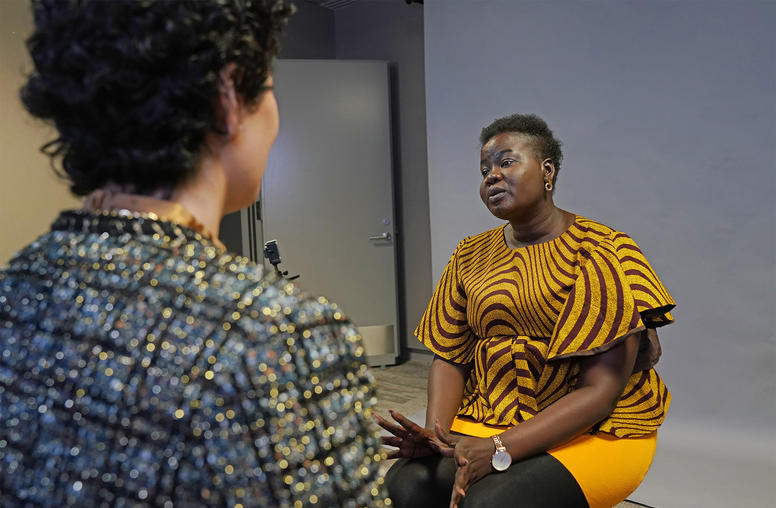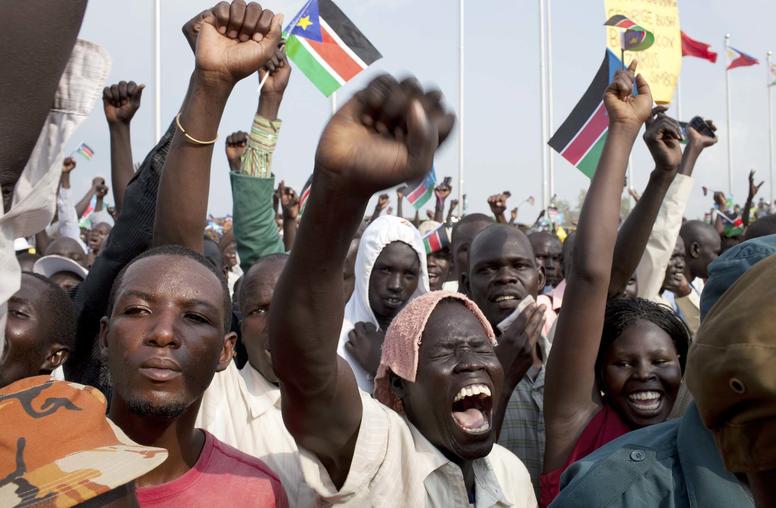Will the Latest Deal Bring Peace in South Sudan?
Although welcomed by many citizens, the deal’s serious deficiencies could exacerbate the conflict.
On August 5, the warring parties in South Sudan signed an agreement which calls for the formation of another power-sharing government. The previous power-sharing government collapsed in July 2016, and the war has since spread throughout the country. USIP’s Aly Verjee and Payton Knopf discuss the developments that led to the deal, identify the agreement’s risks and deficiencies, and assess future prospects for the peace process.

Since the peace talks moved to Khartoum, Sudan, several agreements have been signed. Some media reported the August 5 agreement as a "final deal." What is happening in the South Sudan peace process?
Verjee: The August 5 agreement is not a final deal. Negotiations were recently extended to August 27, and may well be extended again. The August 5 agreement was the sixth interim agreement signed since Sudan assumed control of the mediation process at the end of June, after Ethiopia relinquished its role as the lead mediator.
Assuming the remaining disputed issues and details are agreed, the negotiators will sign a final, consolidated document. That text will serve as the basis for the establishment of a new, transitional, power-sharing government, and require new security arrangements across the country. It will also continue commitments to earlier economic, social and accountability measures made under the 2015 peace agreement, many of which were unimplemented.
In principle, this sounds fine—but there are major challenges ahead. There are serious deficiencies in the deal that may make things worse, particularly in the security sector. An unrealistic timeline for the integration of forces may lead to another security collapse. The uncertainty of measures for the demilitarization of urban areas could set the stage for new confrontations: a risk heightened by the memory of the battles in the capital, Juba, that both began the war in December 2013 and led to the 2015 agreement's collapse.
Not all the aggrieved parties are yet included in the deal, which may incentivize some to keep fighting. And perhaps most crucially, there is little evidence of genuine political will and desire to reform among those that signed the deal. Will they spend the country's resources to rebuild the ruined economy rather than enrich themselves? Will they hold accountable those soldiers and commanders responsible for war crimes, and, ultimately agree to downsize the army? Can they trust each other to govern collectively? The enthusiasm with which many South Sudanese greeted the deal indicates how desperate people are for any chance of peace. But we are a long way from that peace becoming a certainty.
How have these latest developments in the peace process been influenced by political shifts in the region?
Knopf: The center of gravity in the peace process has rapidly shifted from Ethiopia to Sudan. Ethiopia had forcefully maintained control of the mediation, as well as the related cease-fire monitoring mechanism, since the outbreak of the civil war in December 2013. But since taking office in April, Ethiopian Prime Minister Abiy Ahmed has undertaken a dizzying diplomatic effort in the region: he has brokered rapprochement with Eritrea, mitigated tensions on the use of the Nile with Egypt, and attempted to defuse political tensions in Somalia. These issues have taken priority over efforts to end South Sudan's civil war.
Sudan has taken the opportunity of being in the driver's seat to secure its own security and economic interests in South Sudan. One of the agreements signed allows Sudanese forces to potentially occupy the oil fields. The government of Sudan's interests are not likely to align with those of the people of South Sudan nor are they predicated on preserving the country's sovereignty.
Uganda's President Yoweri Museveni has also played a prominent role in the Khartoum talks, and attended the signing of agreements in June and August in Khartoum. The Khartoum talks have shown that Sudan and Uganda can align their interests and find mutually beneficial arrangements in South Sudan, in contrast to the conventional wisdom that they are at perennial logger-heads on South Sudan. But these arrangements may come at the expense of South Sudan's citizens.
Verjee: Ethiopia's long-term interests may not be served by withdrawing from the South Sudan mediation process. South Sudan's dysfunction could once more undermine Ethiopian border security as well as broader regional interests. Given its comparatively limited economic exposure to South Sudan, Ethiopia remains the region's most honest broker. But Ethiopia also wants to accommodate Sudanese interests, which may help explain Abiy's willingness to concede the file to Khartoum.
Khartoum has interests in numerous unresolved issues related to South Sudan's secession: the apportionment of billions of dollars of debt, the final status of the disputed territory of Abyei and the demarcation of the border, to name but three. For offering a lifeline to South Sudan's incumbent president, Salva Kiir, who remains in power as head of the transitional government, Sudan may drive a hard bargain.
What are the implications for the humanitarian situation in South Sudan?
Knopf: There is no evidence to suggest that the deals reached in Khartoum will meaningfully address South Sudan's humanitarian catastrophe. As discussed above, they are more likely to exacerbate rather than defuse the conflict and insecurity that underlie the humanitarian emergency.
The United States contributes nearly $1 billion out of the $1.8 billion per year in international humanitarian assistance. In May, the United States announced a review "to ensure our assistance does not contribute to or prolong the conflict or facilitate predatory or corrupt behavior." While the review is not yet complete, it is hard to imagine that any donor can sustain these funding levels for years to come.
Concurrently, the humanitarian community should use the U.S. assistance review to put forward humanitarian policy proposals that include a rigorous and honest analysis of the interaction between aid and the political economy of the conflict. Such an approach could help improve humanitarian outcomes for the South Sudanese. With the likelihood of further deterioration and fragmentation of the political, security, and economic landscape in South Sudan, this is all the more vital. There is increasing evidence that some relief efforts have been manipulated by the warring parties to advance their own political and military objectives. Fortunately, there is a wealth of collective experience in South Sudan and other complex humanitarian emergencies for navigating challenges to the integrity of relief operations during periods of conflict that can and should be drawn upon.
What are the future prospects for the peace process and what should the United States do now?
Verjee: Khartoum is not letting go of the peace process. It is essential now that the United States ensures that whatever final deal is put in place, it first does no harm. The U.S. could help the mediation advance de-escalating, enforceable arrangements for the security aspects of the agreement and be clear about what other provisions it could support. If the security arrangements fail, the power-sharing component of any deal becomes irrelevant. This should be a key lesson from the collapse of the 2015 agreement.
Knopf: The historic irony of Sudan leading these mediation efforts brings into sharp relief the absence of purposeful U.S. diplomatic engagement in South Sudan and the broader region. The U.S. should accept that only a new mediation effort could improve the prospects of ending the war and the humanitarian crisis. The question is whether the United States is prepared to exert its influence to achieve this and ensure that the process does not only benefit Khartoum, Kampala and the South Sudanese elites who have perpetuated a horrific war.
The United States remains the most influential external actor in the region. Uganda is, for example, the largest recipient of U.S. military aid in sub-Saharan Africa. And there are at present unique diplomatic opportunities: the second phase of the bilateral normalization process between the U.S. and Sudan provides the administration significant leverage to shape Khartoum's policy approaches toward South Sudan.
Effective action has been hampered by the failure to designate a senior official empowered to develop and execute the administration's strategy. Such an individual must have the stature to engage with the regional heads of state, who ultimately call the shots, and have sufficient standing in Washington to bring to bear the coordinated weight of all the agencies of the U.S. government.



